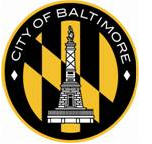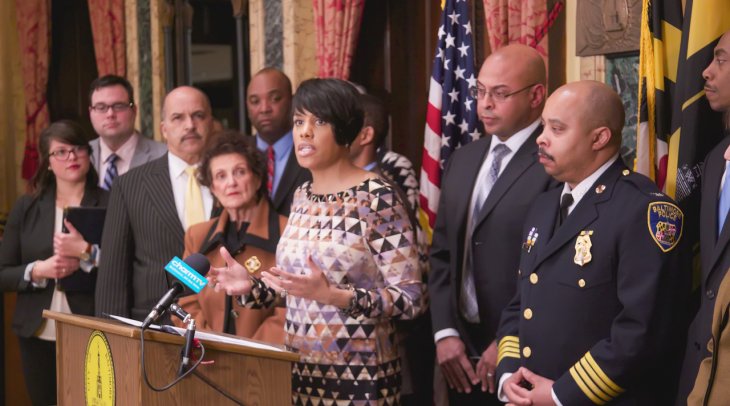Mayor Announces Recommendations for Body Camera Program
Wednesday Feb 18th, 2015

FOR IMMEDIATE RELEASE

Mayor Rawlings-Blake Announces Recommendations for Implementing Body Camera Program for Baltimore City Police
Mayor’s working group recommends a pilot program to fully vet policies and practices
BALTIMORE, Md. (February 18, 2015)—Today, Mayor Stephanie Rawlings-Blake was joined by members of the Mayor’s Working Group on the Use and Implementation of Body-Worn Cameras and community leaders to discuss the working group’s recommendations for implementing a body camera program for the Baltimore City Police Department (BPD). The recommendations are included in the working group’s report, which is the result of several months of research conducted by the working group.
“We are committed to getting this right,” said Mayor Rawlings-Blake. “These recommendations are the outcome of serious and robust conversations from many representatives of the community. This policy will benefit and protect our sworn members and the public. It will also guarantee a level of accountability for everyone.”
Mayor Rawlings-Blake announced the formation of the working group in October 2014. The group—whose goal is to assess the implementation of body cameras for BPD officers—is comprised of law enforcement officials, legal representatives, information technology specialists, community members, and clergy.
“I am confident that the body camera implementation recommended by this working group is the next step forward in making Baltimore a safer city,” said James R. Benjamin, Jr., co-chair of the working group. “This fully vetted, legally sound program will increase accountability and transparency for our police force, while providing a commonsense solution to continue making our city safer.”
The Mayor’s Working Group on the Use and Implementation of Body-Worn Cameras reported the following recommendations and findings:
- The total cost of body worn cameras in year one would range between $5.5 million and $7.9 million depending on type of cameras and how many officers are wearing them.
- A pilot program is the most cost efficient way to prepare for a full roll out of a body-worn camera program throughout BPD. This will permit a thorough review of different body camera models and allow BPD to fully vet policies and practices.
- Based on 100 officers piloting the technology for 6 months, the projected fixed cost of a pilot program is approximately $1.4 million. The pilot program would be included as part of the City’s formal procurement process, which, on average, takes 180 days from RFP issuance to awarding the contract.
- The pilot program should be conducted in high call volume districts and should begin by the end of this year.
- Cameras should be operated during every interaction with the public and during the exercise of police powers during law enforcement activities. Law enforcement personnel should alert citizens involved in an interaction (as soon as practicable) that a body-worn camera is operational.
- A body camera program must be consistent with best practices under the Maryland Public Information Act (MPIA) to handle external and bulk requests. Additionally, the working group recommends a four year data retention period for footage captured by body cameras.
The report also details recommendations for training, as well as protocols relating to the recording, logging, and storage of camera footage, and access to this footage.
A public comment period will take place through March 6, 2015. Feedback can be submitted via email at feedback.bodyworncamera@baltimorecity.gov.
The full report is available at mayor.baltimorecity.gov/programs/body-camera-working-group/report.